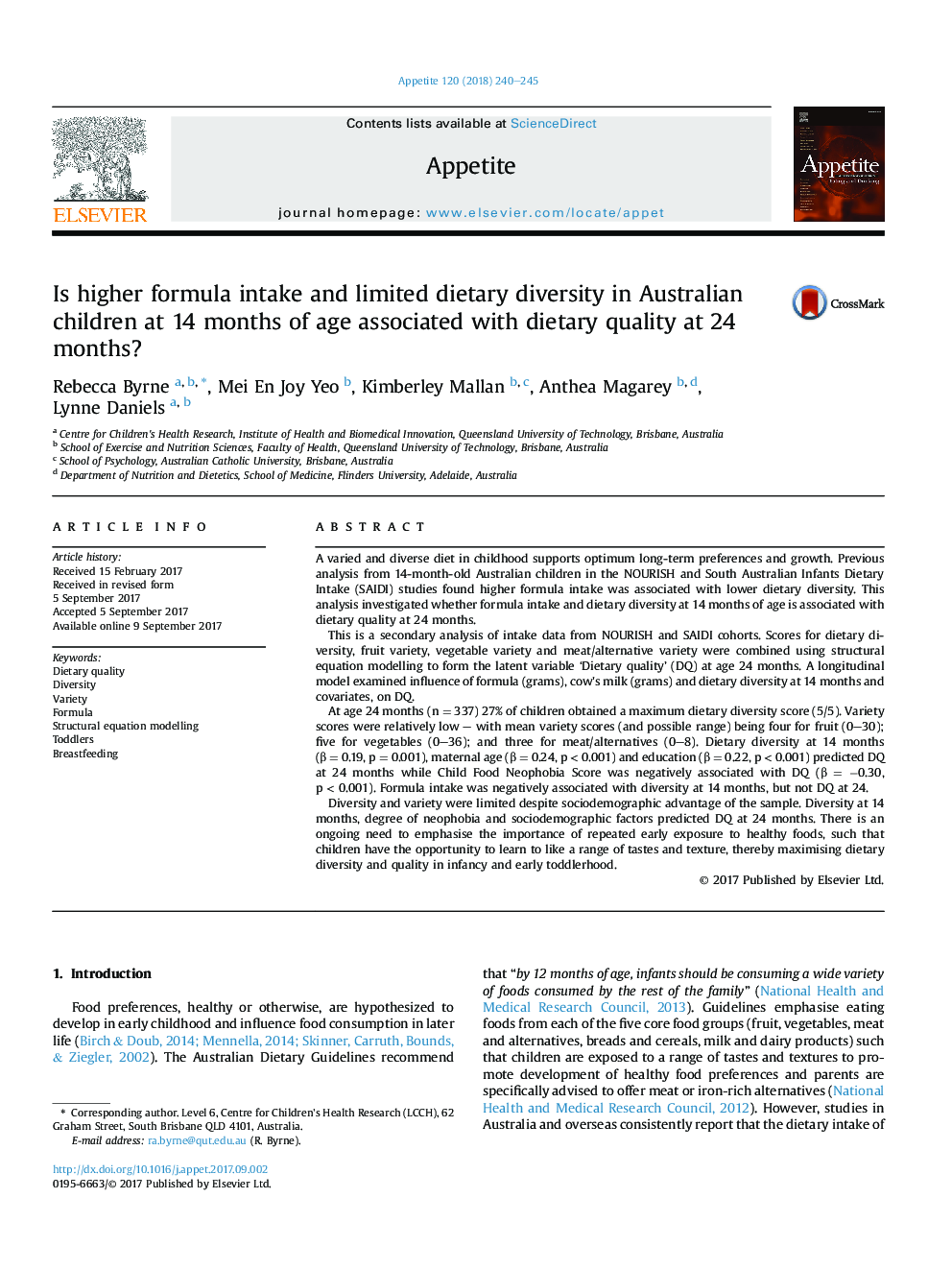| کد مقاله | کد نشریه | سال انتشار | مقاله انگلیسی | نسخه تمام متن |
|---|---|---|---|---|
| 5043938 | 1475360 | 2018 | 6 صفحه PDF | دانلود رایگان |
A varied and diverse diet in childhood supports optimum long-term preferences and growth. Previous analysis from 14-month-old Australian children in the NOURISH and South Australian Infants Dietary Intake (SAIDI) studies found higher formula intake was associated with lower dietary diversity. This analysis investigated whether formula intake and dietary diversity at 14 months of age is associated with dietary quality at 24 months.This is a secondary analysis of intake data from NOURISH and SAIDI cohorts. Scores for dietary diversity, fruit variety, vegetable variety and meat/alternative variety were combined using structural equation modelling to form the latent variable 'Dietary quality' (DQ) at age 24 months. A longitudinal model examined influence of formula (grams), cow's milk (grams) and dietary diversity at 14 months and covariates, on DQ.At age 24 months (n = 337) 27% of children obtained a maximum dietary diversity score (5/5). Variety scores were relatively low - with mean variety scores (and possible range) being four for fruit (0-30); five for vegetables (0-36); and three for meat/alternatives (0-8). Dietary diversity at 14 months (β = 0.19, p = 0.001), maternal age (β = 0.24, p < 0.001) and education (β = 0.22, p < 0.001) predicted DQ at 24 months while Child Food Neophobia Score was negatively associated with DQ (β = â0.30, p < 0.001). Formula intake was negatively associated with diversity at 14 months, but not DQ at 24.Diversity and variety were limited despite sociodemographic advantage of the sample. Diversity at 14 months, degree of neophobia and sociodemographic factors predicted DQ at 24 months. There is an ongoing need to emphasise the importance of repeated early exposure to healthy foods, such that children have the opportunity to learn to like a range of tastes and texture, thereby maximising dietary diversity and quality in infancy and early toddlerhood.
Journal: Appetite - Volume 120, 1 January 2018, Pages 240-245
